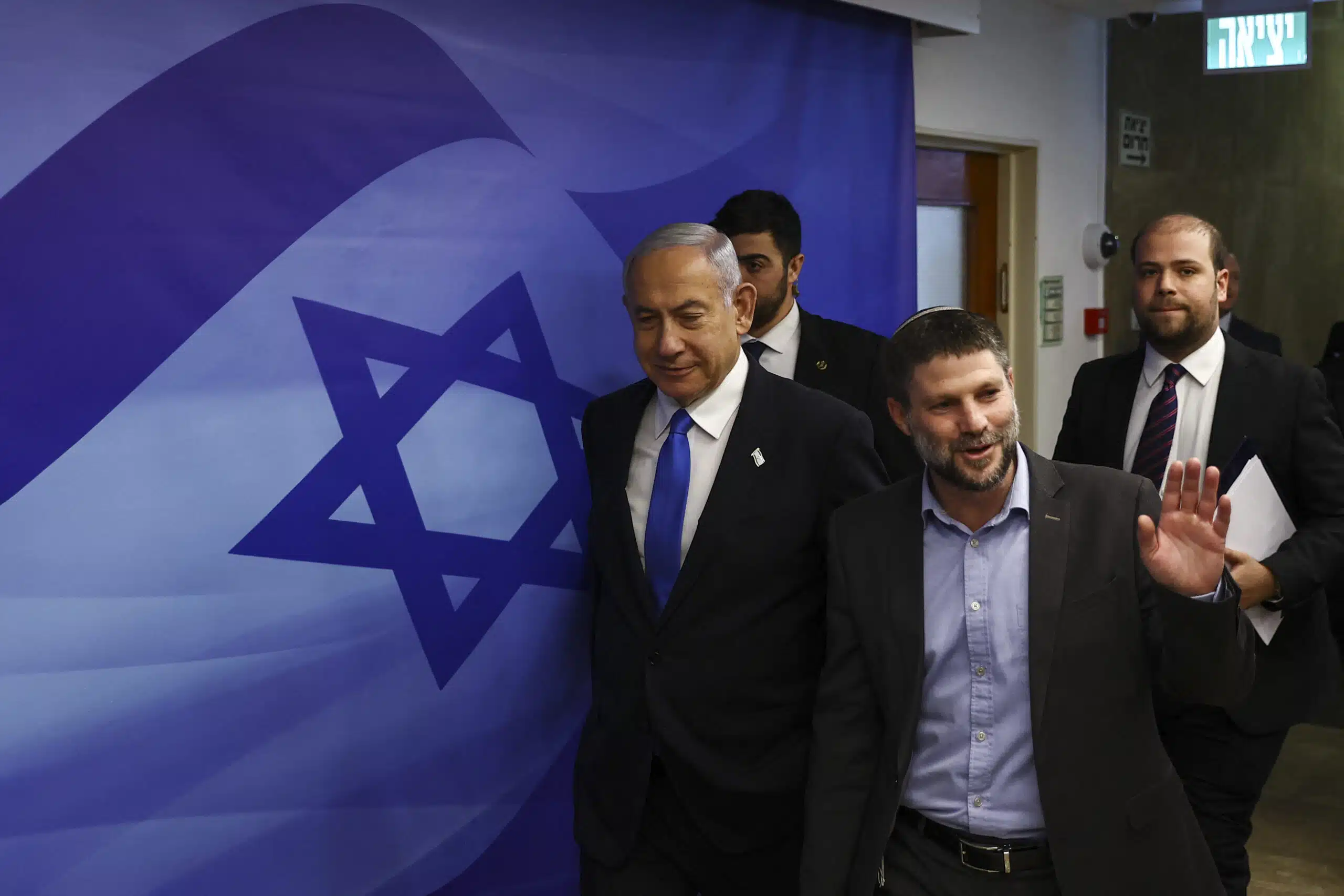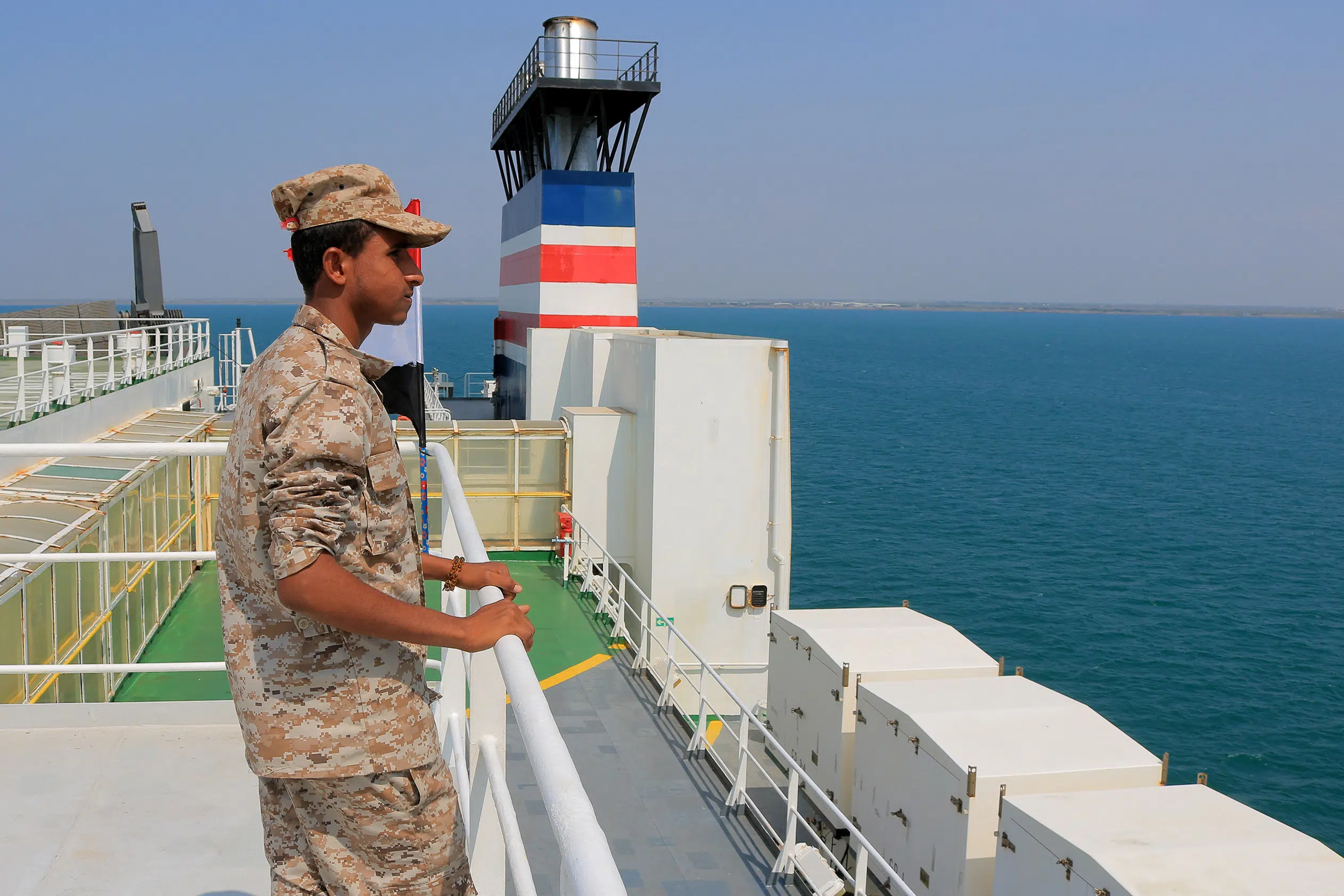Brussels – Israeli Prime Minister Benjamin Netanyahu has unabashedly told his American ally that Israel will oppose the creation of a Palestinian state at the end of the war against Hamas. But the EU is not resigned: at the Foreign Affairs Council scheduled for Monday, Jan. 22, the 27 will try to revive the two-state solution in two separate discussions with the foreign ministers of Israel and the Palestinian National Authority.
In addition to Israeli Israel Katz and Palestinian Riyad al-Maliki, the foreign ministers of three key countries in the region, Saudi Arabia, Jordan, and Egypt, will arrive in the European capital, and the Secretary General of the League of Arab States, Ahmed Aboul Gheit, as well. A “rather complex choreography,” as one senior EU official called it, in which the EU High Representative for Foreign Affairs, Josep Borrell, has “invested heavily since day one” of the conflict.
The main topics of the “ballet” will be the humanitarian situation in the Gaza Strip and the need for continued and unimpeded assistance to the Palestinian population, a renewed call for the release of hostages and full implementation—by Israel and Hamas—of UN resolutions, the situation in the West Bank and the risks of regional escalation, including the Red Sea. However, the ministers of the 27, together with the Arab partners, will also reflect on the “day after,” a possible peace plan and the need for concrete steps to revive the two-state solution, including through continued support for the Palestinian Authority.

The goals are “a full normalization of Israel’s relations with Arab countries, Israel’s security and an independent Palestinian state.” A mission impossible, in the aftermath of Netanyahu’s new closure to the possibility of working toward the creation of a sovereign Palestinian state peacefully coexisting with Israel. “No Israeli diplomat or politician has spoken about the two-state solution since October 7,” European sources admit. Indeed, several ministers—and now even the head of government—have publicly rejected that perspective. A perspective that Hamas likewise rejects due to its desire
to destroy the State of Israel. But for the EU it is “very difficult to imagine alternatives; for the Palestinians, the only way to have a future is to have their own state coexisting alongside Israel.” While there are no windows for dialogue with Hamas, which the EU recognizes as a terrorist organization, Tel Aviv is a very close partner of Brussels, with which the EU has had an Association Agreement since 2000. A senior European official opened to the possibility of putting pressure on Israel to end opposition to the two-state solution: “We are proposing some ideas to the member states, and part of these ideas are clearly also about how we can use our conditionalities in the future.”
Since the year of its establishment, the EU-Israel Association Agreement has often been the target of harsh criticism. An agreement that is based on the shared common values of democracy and respect for human rights, the rule of law, and fundamental freedoms, which Israel systematically tramples not only in the current massive bombardment of Gaza but also with the progressive occupation of the West Bank and the forced displacement of Palestinian communities. Calling the agreement into question would put on the table a series of trade concessions that are vital to Israel’s economy for which the EU is the top trading partner.
The status of work regarding the EU naval mission in the Red Sea
On a parallel track, the European External Action Service (EEAS), is working to propose to the 27 a regime of restrictive measures for extremist Israeli settlers: “The Americans have done it, the UK has done it, now it’s up to us to sanction people who are an obstacle to peace,” said an EU source. The other issue on which the ministers’ exchanges will focus is the spreading of tensions to the Red Sea, where for two months now Houthi rebels— backed by Iran—have been attacking from Yemen cargo ships crossing the Suez Canal.

Red Sea, a Houthi guard on a Bahamas-flagged ship seized in a Yemeni port (Photo by AFP)
The 27 will discuss the European-led naval mission that the EEAS would like to make operational as soon as possible. Certainly not as early as Monday, where the goal is only to confirm that “the principle that the EU should be present with a military operation is accepted” by all. A defensive mission, involving the use of force to respond to “incoming fire” and which can count on at least “three military ships” capable of shooting down “missiles, rockets, or drones” launched against vessels bound for or coming from the Suez Canal.
The idea is to expand AGENOR, an existing operation in the Strait of Hormuz, the Persian Gulf, and the Indian Ocean. It would be the quickest option because it would avoid going through national parliaments (those that require it). “We are talking to the member countries that are part of it,” the source explained. The AGENOR mission includes Belgium, Denmark, France, Greece, Italy, the Netherlands, and Norway. The mission, which does not include “ground operations,” will be “open” to the participation of non-EU countries interested in preserving freedom of navigation in the Red Sea. The goal remains to approve the mission at the February 19 Foreign Affairs Council.
English version by the Translation Service of Withub



![Nave cargo nello stretto di Suez [foto: Daniel Csorfoly, Wikimedia Commons]](https://www.eunews.it/wp-content/uploads/2024/01/SuezCanal4_byDanielCsorfoly-350x250.jpg.webp)




